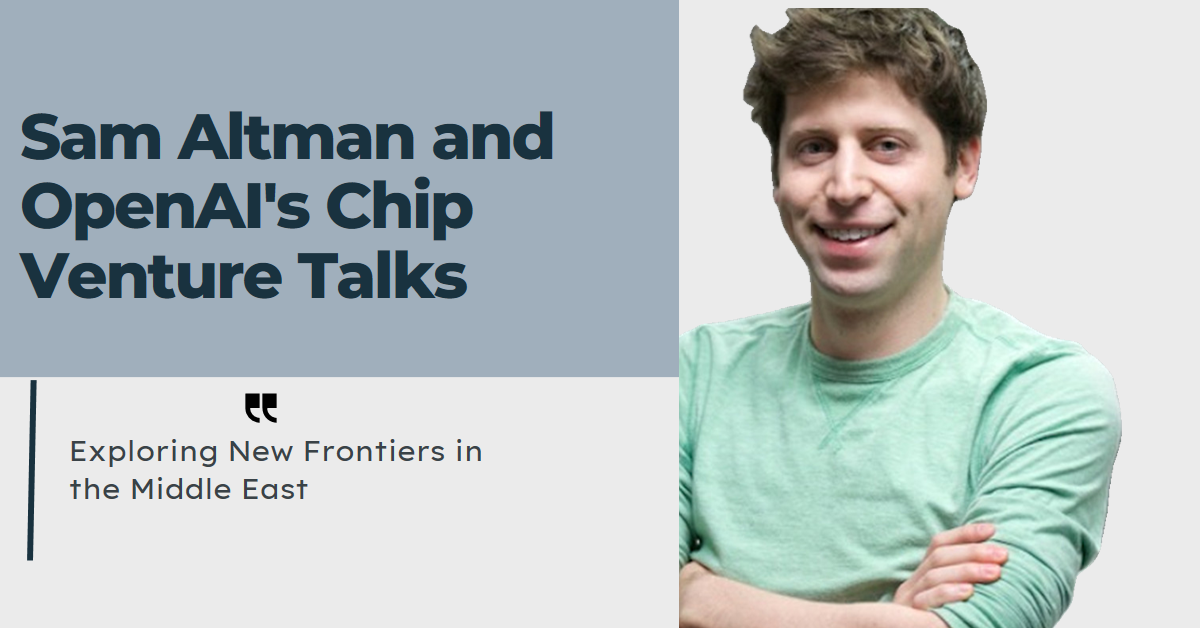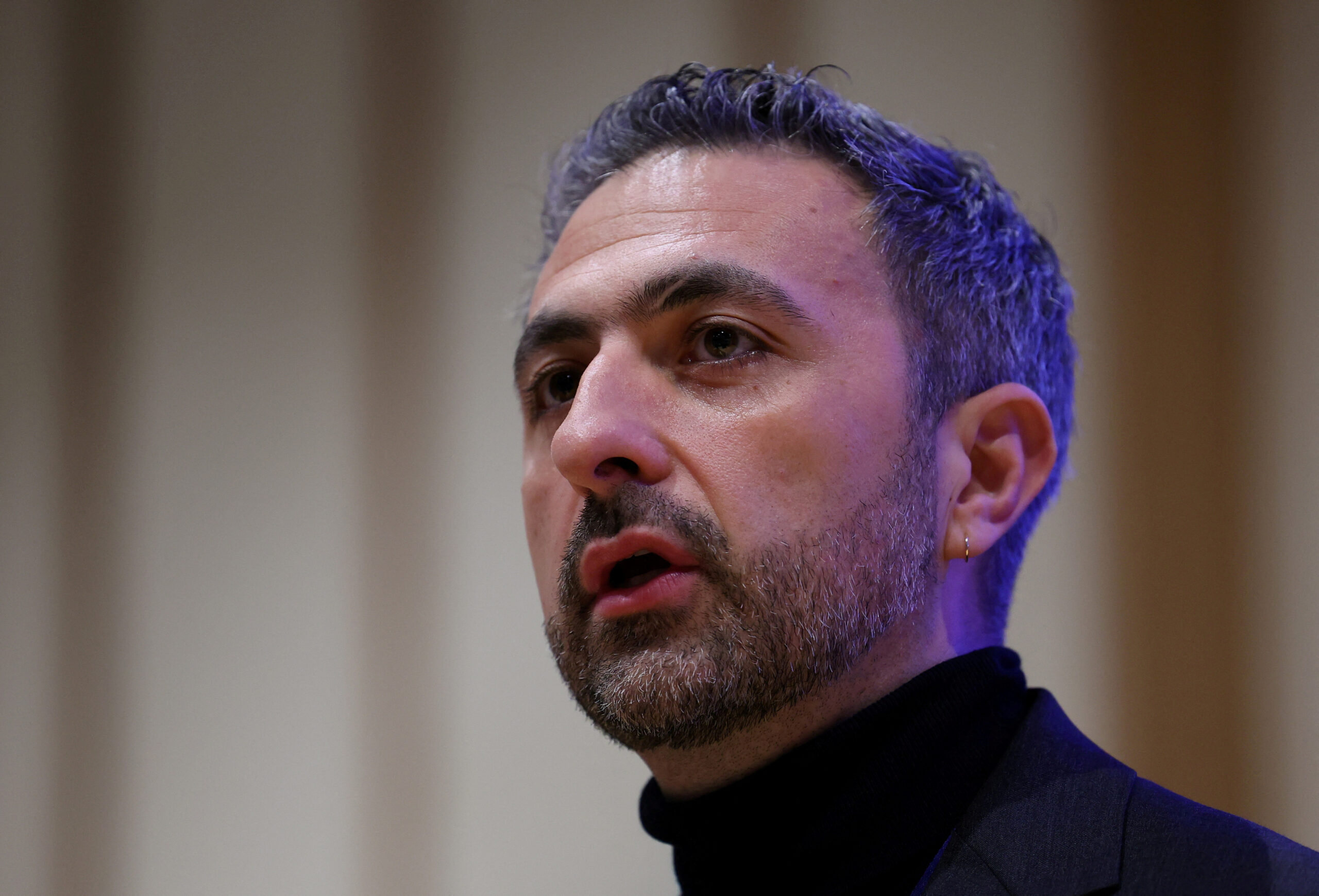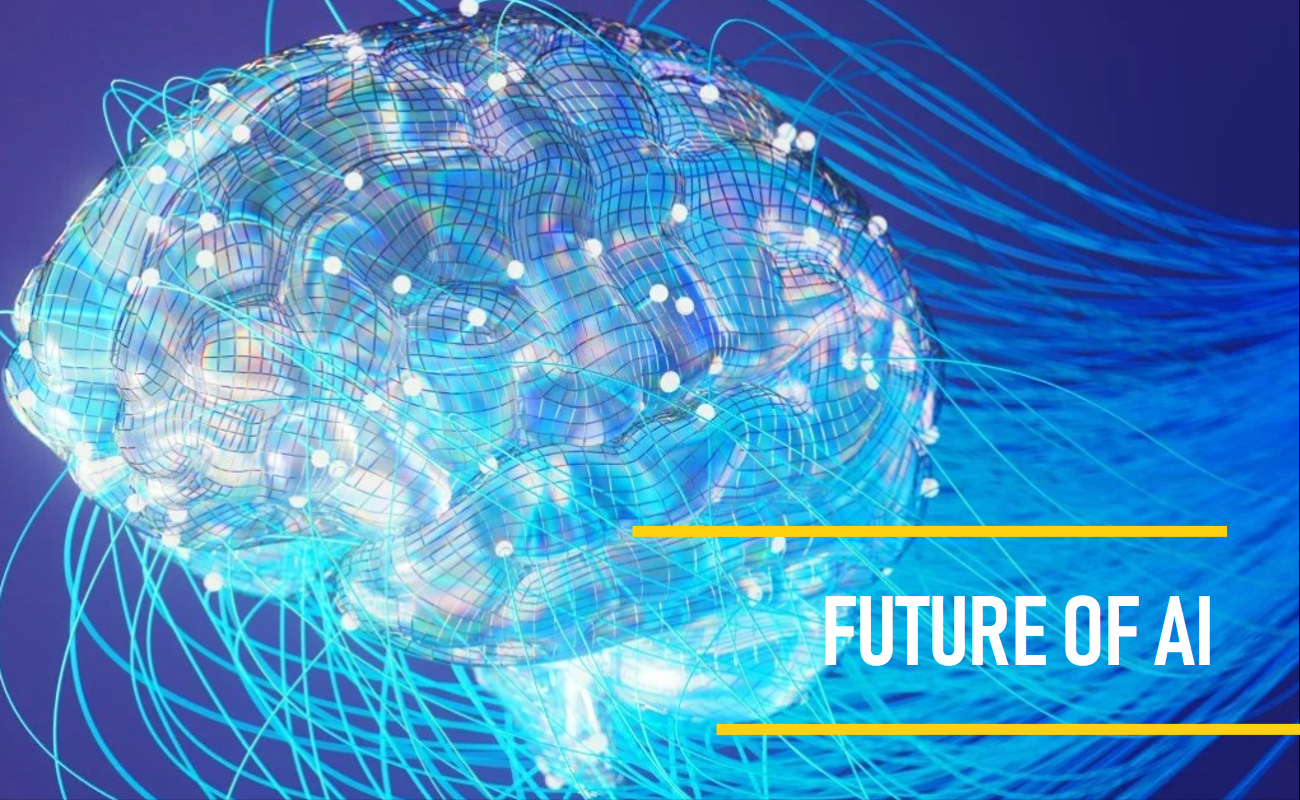AI
Exploring New Frontiers: Sam Altman and OpenAI’s Chip Venture Talks in the Middle East

Unraveling the Future of Technology and Collaboration
In the ever-evolving landscape of technology, the recent news about Sam Altman, the CEO of OpenAI, engaging in talks with Middle East backers over a potential chip venture has sent ripples across the industry. This development not only signifies OpenAI’s ambition to push the boundaries of artificial intelligence but also highlights the growing influence of global collaboration in shaping the future of technology. In this opinion piece, we delve into the implications of this intriguing venture, examining the potential benefits, challenges, and the broader impact it may have on the tech landscape.
Table of Contents
Breaking Ground: OpenAI’s Ambitious Venture
OpenAI, founded with the mission to ensure that artificial general intelligence (AGI) benefits all of humanity, has consistently been at the forefront of cutting-edge advancements. The talks between Sam Altman and Middle East backers signal a potential new chapter for the organization, one that involves the development of specialized chips to power the next generation of AI applications.

Pioneering AI Hardware: A Strategic Move
The decision to explore AI hardware aligns with the strategic vision of OpenAI. By venturing into the realm of specialized chips, the organization aims to exert greater control over the hardware that runs its AI models. This move not only enhances performance and efficiency but also opens doors to innovations that could drive advancements in AGI.
Global Collaboration: A Nexus of Ideas
The involvement of Middle East backers adds a fascinating dimension to this venture. It reflects a globalized approach to technological innovation, where diverse perspectives and resources converge to tackle complex challenges. The Middle East, with its burgeoning interest in technology and substantial financial backing, offers a fertile ground for collaboration that extends beyond geographical boundaries.
Navigating Challenges: The Road Ahead
As with any ambitious undertaking, the OpenAI chip venture is not without its challenges. Navigating these hurdles will be crucial in ensuring the success and sustainability of this pioneering initiative.
Technical Challenges: Pushing the Envelope
Developing specialized chips for AI applications involves overcoming significant technical hurdles. The chips need to be tailored to handle the unique demands of OpenAI’s advanced models, requiring a delicate balance between power consumption, processing speed, and scalability. Addressing these challenges will be pivotal in unleashing the full potential of AI.
Ethical Considerations: Safeguarding Humanity
The quest for AGI must be accompanied by a commitment to ethical considerations. As OpenAI delves into hardware development, ensuring transparency, accountability, and adherence to ethical standards becomes paramount. Striking the right balance between innovation and ethical responsibility will be an ongoing challenge that requires careful navigation.
Impact on the Tech Landscape: A Paradigm Shift
The potential impact of OpenAI’s chip venture extends far beyond the organization itself. It has the potential to catalyze a paradigm shift in the tech landscape, influencing how AI is developed, deployed, and integrated into various industries.
Empowering AI Applications: Unleashing Innovation
The development of specialized chips tailored for OpenAI’s models holds the promise of significantly enhancing the capabilities of AI applications. From healthcare and finance to autonomous vehicles and beyond, industries stand to benefit from a new wave of innovation powered by more efficient and powerful AI technologies.
Market Dynamics: Redefining Competition
The entry of OpenAI into the hardware domain introduces a formidable player in an already competitive market. Traditional chip manufacturers may face new challenges as OpenAI’s specialized chips cater to the specific needs of advanced AI models. This shift could redefine market dynamics, prompting existing players to innovate and adapt to stay relevant.
Global Collaboration: A Catalyst for Progress
The collaboration between Sam Altman and Middle East backers represents more than just a business venture; it embodies the spirit of global collaboration in the pursuit of technological progress.
Knowledge Exchange: Bridging Cultures and Ideas
The collaboration with Middle East backers fosters a two-way street of knowledge exchange. It brings together expertise from different parts of the world, creating a melting pot of ideas that transcend cultural and geographical boundaries. Such collaborations are instrumental in pushing the envelope of innovation.
Investment in Future Talent: Nurturing Innovation
Beyond the financial backing, the partnership with Middle East backers can contribute to the development of local talent pools in technology and AI. This investment in human capital is essential for fostering a sustainable ecosystem of innovation that goes beyond the confines of this specific venture.
Conclusion: A Bold Step Towards the Future
In conclusion, the talks between Sam Altman and Middle East backers regarding OpenAI’s chip venture mark a bold step towards the future of technology. As we stand on the cusp of a new era in AI development, the collaboration signifies the importance of global partnerships and the convergence of diverse perspectives in shaping the trajectory of innovation.
OpenAI’s foray into specialized chips not only reflects its commitment to pushing the boundaries of AI but also underscores the need for strategic collaborations to navigate the challenges ahead. The impact of this venture extends beyond the confines of the tech industry, influencing market dynamics, ethical considerations, and global collaboration.
In a world where technology knows no borders, it is through such groundbreaking initiatives that we pave the way for a future where artificial intelligence benefits all of humanity. The OpenAI chip venture, with its fusion of expertise and resources from different corners of the world, exemplifies the collaborative spirit needed to unravel the full potential of AI and lead us into a future where innovation knows no bounds.
AI
Microsoft’s Strategic Move: DeepMind Co-founder Suleyman to Lead Consumer AI Unit, Absorbing Inflection Staff

Table of Contents
Introduction
In a significant development in the tech industry, Microsoft has made a strategic move by hiring DeepMind co-founder, Mustafa Suleyman, to lead its consumer AI unit. This decision not only highlights Microsoft’s commitment to advancing in the AI sector but also signifies a consolidation of talent and expertise within the company.
The Significance of Microsoft’s Hire
Microsoft’s decision to bring on board Mustafa Suleyman, a prominent figure in the AI community, underscores the company’s focus on strengthening its position in the consumer AI space. Suleyman’s background and experience in artificial intelligence make him a valuable addition to Microsoft’s leadership team.
Implications for Microsoft’s Consumer AI Unit
With Suleyman at the helm of its consumer AI unit, Microsoft is poised to drive innovation and enhance its offerings in areas such as virtual assistants, personalized recommendations, and more. The infusion of talent from Suleyman’s AI start-up, Inflection, further bolsters Microsoft’s capabilities in delivering cutting-edge AI solutions to consumers.
Consolidating Microsoft’s Lead in the Sector
By absorbing most of the staff from Inflection, Microsoft is not only expanding its talent pool but also leveraging the expertise and insights gained from Suleyman’s team. This move positions Microsoft as a frontrunner in the competitive AI landscape, enabling the company to stay ahead of the curve and deliver impactful AI-driven experiences to users.
The Future of Consumer AI at Microsoft
Under Suleyman’s leadership, Microsoft is expected to drive forward-thinking initiatives that push the boundaries of consumer AI. With a focus on user-centric innovation and ethical AI practices, Microsoft is poised to shape the future of AI-powered technologies and services for consumers worldwide.
Conclusion
Microsoft’s decision to appoint Mustafa Suleyman to lead its consumer AI unit marks a pivotal moment in the company’s journey towards advancing in the AI space. By combining talent from Inflection with its existing resources, Microsoft is well-positioned to drive innovation, deliver exceptional consumer experiences, and solidify its lead in the ever-evolving world of artificial intelligence.
AI
Unveiling the Ethical Dilemma: Microsoft AI Engineer’s Concerns on Copilot Designer Safety

Introduction
In a recent revelation, a Microsoft AI engineer has raised red flags about the safety concerns surrounding Copilot Designer, shedding light on disturbing scenes generated by the tool that have yet to be adequately addressed by Microsoft. This article delves into the intricacies of this issue, exploring the implications and ethical considerations surrounding AI technology.
1: Understanding Copilot Designer
Copilot Designer is a cutting-edge AI tool developed by Microsoft that aims to assist users in generating code and design elements efficiently. Leveraging machine learning algorithms, Copilot Designer analyzes patterns and provides suggestions to streamline the design process.
2: The Engineer’s Alarming Discovery
The Microsoft AI engineer discovered that Copilot Designer was generating disturbing scenes that raised ethical concerns. These scenes, when overlooked, could potentially have far-reaching implications on user experience and societal norms.
3: Unaddressed Concerns by Microsoft
Despite the engineer’s warnings, it appears that Microsoft has not taken adequate steps to address the safety concerns associated with Copilot Designer. This lack of action raises questions about the company’s commitment to ethical AI development and user well-being.
4: Ethical Implications of AI Technology
The incident with Copilot Designer underscores the broader ethical implications of AI technology. As AI continues to permeate various aspects of our lives, it becomes imperative to prioritize ethical considerations to prevent unintended consequences.
5: Importance of Transparency and Accountability
Transparency and accountability are crucial pillars in ensuring the responsible development and deployment of AI technologies like Copilot Designer. Companies must be transparent about their AI systems’ capabilities and limitations while being held accountable for any potential harm they may cause.
6: The Role of Regulatory Bodies
Regulatory bodies such as the FTC play a vital role in overseeing the ethical use of AI technologies. By collaborating with industry experts and stakeholders, regulatory bodies can establish guidelines and standards to safeguard against the potential misuse of AI systems.
7: Moving Towards Ethical AI Development
In light of the concerns the Microsoft AI engineer raised, there is a pressing need for industry-wide discussions on ethical AI development. By fostering a culture of responsibility and accountability, we can ensure that AI technologies like Copilot Designer are developed and utilized to prioritise user safety and well-being.
Conclusion
The revelations brought forth by the Microsoft AI engineer regarding Copilot Designer serve as a wake-up call for the tech industry to reevaluate its approach towards ethical AI development. By addressing safety concerns proactively and prioritizing transparency and accountability, we can pave the way for a future where AI technologies enhance our lives responsibly and ethically.
AI
World at a Crossroads: Extinction or a New AI-Enabled Civilization?

1: The Precarious State of Our World
In a world grappling with the dual challenges of relentless warfare and the impending threat of climate change, humanity finds itself standing at a crossroads. As nations engage in power struggles and our planet faces environmental peril, the search for solutions has led some to explore unconventional avenues. One such avenue gaining increasing attention is the role of artificial intelligence (AI) in steering our collective destiny.
2: War and Climate Change: The Twin Perils
War: A Never-Ending Struggle
As conflicts persist across the globe, the human toll continues to rise. The sheer scale of destruction witnessed in recent conflicts underscores the urgent need for innovative approaches to peacekeeping and conflict resolution.
According to the Stockholm International Peace Research Institute (SIPRI), global military spending reached a staggering $1.83 trillion in 2023, the highest level since the end of the Cold War. This financial commitment to warfare comes at the expense of investments in critical areas such as healthcare, education, and sustainable development.

Climate Change: A Looming Catastrophe
On the other front, climate change poses an existential threat to our planet. The latest report from the Intergovernmental Panel on Climate Change (IPCC) warns of irreversible damage if immediate and drastic measures are not taken. Rising temperatures, extreme weather events, and loss of biodiversity are already taking a toll on ecosystems and vulnerable communities.
3: The AI Solution: A Beacon of Hope?
AI’s Potential to Exceed Human Intelligence
Amid these challenges, there is a growing chorus advocating for the integration of artificial intelligence into our decision-making processes. Proponents argue that machines with the ability to surpass human intelligence could offer innovative solutions to complex global issues.
Leading AI researcher, Dr. Angela Chen, points out, “AI has the potential to process vast amounts of data, identify patterns, and make predictions at speeds and scales beyond human capability. This could be instrumental in addressing the root causes of conflicts and formulating effective climate change mitigation strategies.”
4: The Dark Side of AI Advancement
Ethical Concerns and Unintended Consequences
While the promise of AI is compelling, it is not without its ethical dilemmas and potential pitfalls. The development of superintelligent machines raises concerns about accountability, control, and unintended consequences.
Renowned ethicist, Professor Maya Rodriguez, warns, “Handing over significant decision-making power to AI systems requires careful consideration. What if these systems, in their pursuit of efficiency, prioritize outcomes that are detrimental to human values or lead to unforeseen negative consequences?”
5: Striking a Delicate Balance
A Call for Ethical AI Development
In the quest for a future where AI plays a constructive role, experts emphasize the importance of responsible and ethical development. This includes transparent decision-making algorithms, robust accountability mechanisms, and international cooperation to prevent the weaponization of AI technology.
The Partnership on AI, a consortium of major tech companies and research institutions, aims to establish guidelines for the ethical use of AI. Their commitment to fostering collaboration and sharing best practices reflects a collective recognition of the need for responsible AI deployment.
6: The Role of AI in Conflict Resolution
AI as a Mediator and Peacekeeper
One potential application of AI in addressing global conflicts is its role as a neutral mediator. By processing historical data, identifying underlying causes, and proposing unbiased solutions, AI systems could contribute to more effective and impartial conflict resolution.
Moreover, AI-driven simulations and predictive models could assist in anticipating potential conflicts, allowing for proactive measures to prevent escalation. These tools could become invaluable assets in the pursuit of lasting peace.
7: AI’s Environmental Stewardship
Mitigating Climate Change Through Innovation
On the environmental front, AI presents itself as a tool for mitigating the impact of climate change. Advanced algorithms can analyze climate data to enhance our understanding of complex environmental systems. This knowledge, in turn, enables more precise and effective strategies for conservation and sustainable resource management.
In the energy sector, AI-powered technologies are revolutionizing renewable energy production and consumption. From optimizing solar panel efficiency to managing smart grids, AI’s potential to revolutionize our approach to clean energy is vast.
8: The Human-AI Partnership
Collaboration for a Better Future
Rather than viewing AI as a replacement for human decision-making, proponents argue for a collaborative approach. By combining human intuition, creativity, and emotional intelligence with AI’s analytical prowess, we may unlock unprecedented solutions to the challenges that threaten our existence.
The World Economic Forum’s Global AI Council promotes the idea of a human-AI partnership, emphasizing the importance of inclusive governance and diverse perspectives in shaping the trajectory of AI development. This collaborative model aims to ensure that the benefits of AI are shared equitably across societies.
9: Navigating the Path Forward
Charting a Course for the Future
As we stand at this pivotal moment in history, the path forward is fraught with uncertainties. The convergence of war, climate change, and the potential of AI demands a careful and thoughtful approach.
International cooperation, ethical AI development, and a commitment to sustainable practices are crucial components of a roadmap that can lead us away from the brink of extinction and towards a new era of AI-enabled civilization. The choices we make today will shape the destiny of generations to come, and it is incumbent upon us to choose wisely.
In the face of adversity, the prospect of a future where AI and humanity collaborate to overcome our greatest challenges is both daunting and inspiring. The world may indeed be at a crossroads, but with informed decisions and responsible stewardship, we have the power to forge a path towards a brighter and more sustainable future.
-

 Featured3 years ago
Featured3 years agoThe Right-Wing Politics in United States & The Capitol Hill Mayhem
-

 Elections 20242 months ago
Elections 20242 months agoAnalyzing Trump’s Super Tuesday Triumph and Nikki Haley’s Strategic Moves
-

 News2 years ago
News2 years agoPrioritizing health & education most effective way to improve socio-economic status: President
-

 China3 years ago
China3 years agoCoronavirus Pandemic and Global Response
-

 Canada3 years ago
Canada3 years agoSocio-Economic Implications of Canadian Border Closure With U.S
-

 Conflict3 years ago
Conflict3 years agoKashmir Lockdown, UNGA & Thereafter
-

 Democracy3 years ago
Democracy3 years agoMissing You! SPSC
-

 Democracy3 years ago
Democracy3 years agoPresident Dr Arif Alvi Confers Civil Awards on Independence Day
























